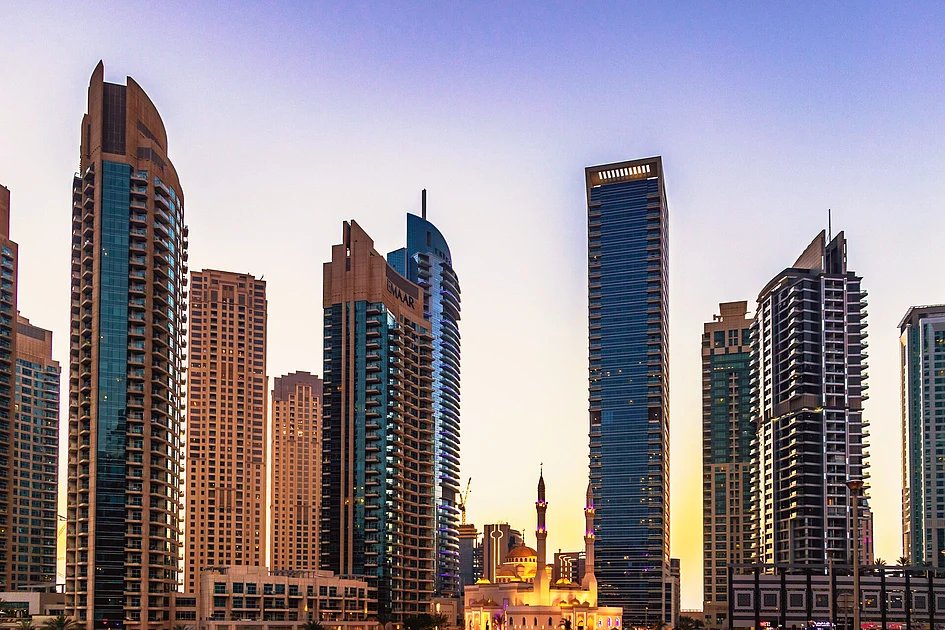Dubai’s commercial real estate sector continued its strong upward trajectory in the third quarter of 2025, driven by robust demand for Grade A office space, surging off-plan activity and a sharp rebound in the retail property market.
Total commercial property sales reached Dh30.38 billion in Q3, up 31 per cent from a year earlier, according to CRC Property’s latest Q3 2025 Market Report — underscoring the emirate’s continued evolution as a global business and investment hub.
The office market once again proved to be the engine of growth. Total office sales reached Dh3.1 billion across 1,153 units during the quarter, reflecting an 18 per cent increase from the previous quarter and an extraordinary 93 per cent surge year-on-year. The number of office transactions rose 19 per cent quarter-on-quarter and 45 per cent compared with the same period last year, reflecting sustained demand from corporates, entrepreneurs and regional business expansions.
The momentum closely aligns with recent findings from CBRE and Knight Frank, both of which noted that Dubai’s office vacancy rates are now at their lowest level in over a decade, particularly for premium towers in free zones, as multinational firms continue to relocate or expand their Middle East headquarters in the UAE.
CRC Property’s Q3 report identifies Business Bay and Jumeirah Lakes Towers (JLT) as the most active office corridors, recording 328 and 277 transactions respectively. Majan and Jumeirah Village Circle followed with 112 and 110 transactions, while Barsha Heights completed the top five trading districts with 71 transactions. The data supports trends highlighted in recent DMCC indicators showing a strong influx of foreign-owned companies across sectors including professional services, fintech, trade, and media, further lifting demand for strategically located and digitally enabled offices.
Yogesh Yerikireddi, JLT area manager at CRC Property, said the strength of Q3 reflects structural demand rather than short-term market sentiment. “The Dubai office market remained exceptionally strong through Q3 2025, led by record demand for Grade A and ESG-compliant towers. With vacancy at historic lows, fitted and vacant commercial offices for sale are seeing unprecedented investor interest. Limited premium supply, coupled with strong corporate relocations and expansion demand, continues to push rents and capital values upward across key free zones,” he noted.
Alongside offices, Dubai’s off-plan commercial market continues to expand. Off-plan transactions reached Dh2.4 billion across 1,101 deals during Q3, of which office and retail projects accounted for Dh1.86 billion over 640 sales. This sustained appetite reflects growing confidence in ongoing master-plan developments, as developers respond to shifting corporate needs, including flexible workspaces, sustainability certifications, digital infrastructure and transit-linked business districts. The pipeline is set to widen further, with an estimated 680,000 square metres of new office supply expected by 2027, according to industry data.
Business Bay, Motor City and Dubai South are among the precincts expected to absorb this growth, driven by the continued inflow of businesses in technology, logistics, trade, and professional services.
The retail segment staged an especially strong comeback during Q3, with total transaction value rising to Dh1.15 billion across 437 deals. This marks a 95 per cent quarter-on-quarter increase and a 55 per cent rise year-on-year, signalling renewed investor confidence following a softer second quarter.
Dubai’s retail performance is being supported by resilient consumer spending, a steady rise in tourist footfall, and new experiential mall formats that blend food, lifestyle, wellness and entertainment — a trend increasingly visible in major destinations such as City Walk, Dubai Hills, Palm Jumeirah and Al Wasl Boulevard. The Department of Economy and Tourism reported that Dubai welcomed over 12.4 million international visitors in the first nine months of 2025, helping sustain retail and hospitality-linked real estate demand.
Average selling prices for secondary office space at CRC increased to Dh1,685 per sq ft in Q3, up 19 per cent from a year earlier — reaching the highest level in more than a decade. Buyer leads across the commercial sector rose 47 per cent year-on-year, reflecting sustained interest despite a natural moderation from a particularly active first half.
Property consultant V.S. Bijukumar said the overall market sentiment continues to be underpinned by several factors: Dubai’s low tax, business-friendly regime; sustained inflows of high-net-worth individuals; strong macroeconomic fundamentals; and continued reforms and free-zone expansions.
“As global corporates consolidate operations in stable and strategic hubs, Dubai’s commercial real estate sector appears poised to extend its strong performance into 2026, supported by limited high-quality supply and ongoing investor confidence,” said Bijukumar.
